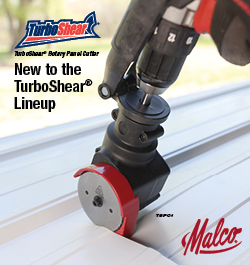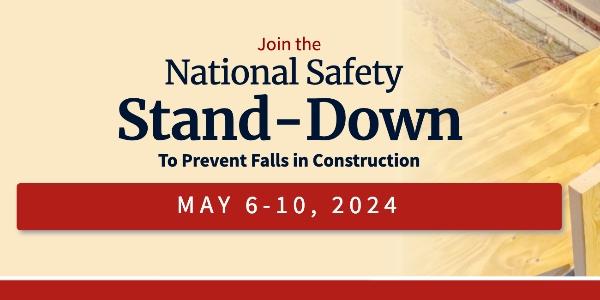Best Practices for Toolbox Talks

By John Kenney, Cotney Consulting Group.
Benefits and guidelines of holding regular toolbox talks at your construction worksite.
Each week your supervisors or safety managers should deliver safety messages to your crews before starting work. Toolbox talks are an excellent method to present your safety messages. Some companies refer to these as tailgate talks or weekly safety messages, but we will refer to them as toolbox talks for simplicity and standardization.
Toolbox talks deliver a relevant and valuable safety message on a specific topic to your employees that work on your job sites. Many companies in our industry understand the importance of delivering toolbox talks and do them regularly as part of their overall safety culture.
I am often asked, "What are the OSHA requirements to hold safety toolbox talks?" The answer is that OSHA does not have any language or specific standard that requires you to hold toolbox talks on a regular or set basis. There is a reference in Title 29, Code of Federal Regulations (CFR), Part 1926 for Construction, 1926.21(b)(2) you need to be aware of "The employer shall instruct each employee in the recognition and avoidance of unsafe conditions and the regulations applicable to his work environment to control or eliminate any hazards or other exposure to illness or injury."
Although some companies may not consider toolbox talks as safety training, they are a best practice that supports your company's safety training program. They will also assist you in meeting the requirements mentioned in the standard above.
Even if you have a vigorous safety training program and provide comprehensive training during the onboarding of your new employees and continued training throughout the year to satisfy specific OSHA requirements, you should add a weekly toolbox talk program. These formal toolbox programs help protect your company from the scrutiny of OSHA, with the added benefit of keeping your workers safe.
Toolbox talk benefits
Some companies do these talks more frequently than once a week, but we will set the easily obtainable standard of doing these weekly in our best practice review.
- Delivering consistent weekly safety messages will reinforce to your employees that safety is crucial to your company and management.
- They share a valuable topic-specific safety message that educates your workforce on workplace hazards and safe work practices of the job.
- Performing weekly at just 25 per session will yield your team an additional 21.6 hours of safety education per year per employee.
Guidelines to consider
- Select a relevant topic that pertains to the work performed on your project site.
- Have a plan. Planning your topics to work performed is strategically beneficial to your overall safety culture.
- Keep the message interesting. Try including a personal experience or past lessons learned on a project.
- Draw participation from your crews. Ask them if they have any personal lessons learned from prior experiences on the subjects to share.
- Always document each topic. Have a sign-in sheet for each meeting and have everyone in attendance sign they participated in that week's toolbox talk.
- Keep and file your toolbox talks along with the sign-in sheets. You will need to reference these in case you ever need to prove a specific topic that was covered.
Where do you find the materials needed for your toolbox talks
There are many topics to cover that are available for companies. Since these vary, always look for the materials specific to the type of work you do.
OSHA
OSHA has an extensive library of material topics in alphabetical order for you to use. You can find them at www.osha.gov/topics/text-index.
The National Roofing Contractors Association (NRCA) has prepared resources for the roofing contractor. Their toolbox talks are explicitly designed for supervisors and trainers to review a vital safety lesson with their crews each week. Each lesson is structured for various presentation styles and includes safety-training tips and key points to stimulate questions and discussion. You can go to the bookstore on www.nrca.net to find out more.
Other industry trade organizations' toolbox alk benefits their members, and safety consultants are also a resource for this information.
To recap, OSHA law does not specifically require toolbox talks. However, a company should consistently want to incorporate them as part of its safety program without being forced by regulation. Safety training alone, especially on an annual basis, can leave holes in a company's safety program and its workforce's level of safety education, so adding a consistent toolbox talk program will enhance your safety culture with minimal effort and cost.
Learn more about Cotney Consulting Group in their directory or visit www.cotneyconsulting.com.
About John Kenney
John Kenney is the Chief Executive Officer at Cotney Consulting Group. Prior to starting Cotney, John had 45 years of experience in the construction industry. John began his career by working as a roofing apprentice at a family business in the Northeast. Because of his skill and hard work, he progressed from roofing laborer to foreman, estimator, chief estimator, Vice President, and Chief Operating Officer with his various companies. John has worked for multiple Top 100 Roofing Contractors and is intimately familiar with all aspects of roofing production, estimating, and operations. In his last role, John was responsible for the daily operations and performance of a large commercial roofing contractor. During his tenure, John ran business units associated with delivering excellent workmanship and unparalleled customer service while ensuring healthy net profits for his company.






















Comments
Leave a Reply
Have an account? Login to leave a comment!
Sign In